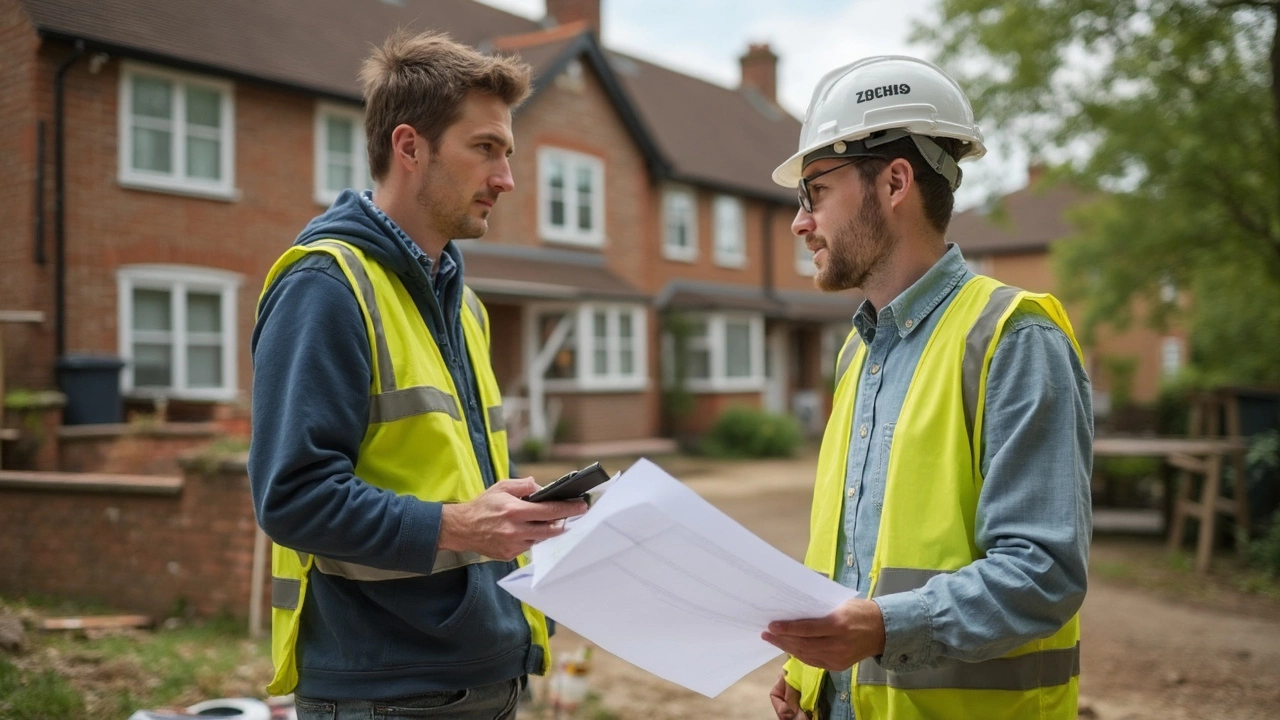Construction Projects: What Every UK Homeowner Needs to Know
If you’re thinking about adding a room, fixing a cracked foundation, or even building a new home, the first step is to get the basics straight. A solid plan saves money, cuts stress, and keeps the project on track. Below you’ll find the must‑know pieces of a successful construction project, plus quick pointers you can use today.
Start With a Realistic Plan
Before you draw any lines on paper, ask yourself three simple questions: What is the goal? How much can you spend? And how long can you wait? Write down the purpose of the project—extra living space, structural repair, or a fresh kitchen. Then set a budget that includes a 10‑15% cushion for unexpected costs. Finally, look at your calendar and decide on a realistic timeline. Having clear answers early on stops the most common overruns.
Know the Rules and Permissions
In the UK, many projects fall under "permitted development" rules, meaning you don’t need a full planning permission. Extensions up to a certain size, loft conversions, and outbuildings often qualify. Check the latest local authority guidelines or use an online checker to see if your project needs approval. If you’re unsure, a quick chat with a planning officer can clear things up and avoid costly stop‑work orders later.
When a project does need permission—like a large extension or a change in use—prepare solid drawings, a site plan, and a short statement of why the work is needed. The clearer your submission, the faster the council will respond.
Pick the Right Materials and Trades
Durability matters more than price. For foundations, a high‑strength cement mix and proper waterproofing can prevent future cracks. For walls and roofs, look for materials that resist moisture and temperature changes, especially in coastal or cold areas. If you’re not a DIY pro, hire a qualified contractor who holds the necessary licences and insurance. Ask for references, check reviews, and confirm they understand the specific challenges of UK weather.
Don’t forget the smaller trades—electricians, plumbers, and roofers. Coordinating them early avoids the common bottleneck where one crew has to wait for another to finish. A good project manager (even if it’s you) can keep everyone on schedule.
Budget Smart and Track Costs
Break the total cost into three buckets: hard costs (materials and labour), soft costs (permits, design fees, insurance), and contingency. Use a spreadsheet or a budgeting app to log every expense as it happens. Review the numbers weekly; spotting a 5% overrun early lets you adjust before the bill balloons.
Keep an eye on hidden expenses like site cleanup, waste disposal, and temporary utilities. These add up fast, especially on bigger builds.
Quality Checks During Build
Regular site inspections protect you from sloppy workmanship. Walk the site at least once a week: look for level floors, straight walls, and proper joint sealing. If you notice a crack larger than 3mm in a foundation, call a structural engineer right away. Early detection can save thousands in repairs.
Take photos and notes after each major milestone—foundation poured, walls up, roof sealed—so you have a clear record if any dispute arises later.
Finish Strong and Keep Records
When the build wraps up, ask for a full handover pack: warranties, maintenance guides, and as‑built drawings. Store these documents safely; they’ll be vital for future resale or insurance claims. Finally, give the space a proper cleaning and a walk‑through with the contractor to confirm everything matches the original plan.
Construction projects can feel overwhelming, but breaking them into clear steps—plan, permit, pick trades, budget, check quality—makes the journey smoother. Use this guide as your checklist, stay on top of costs, and enjoy watching your project turn into reality.


